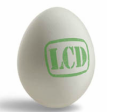Is a Low-Carb Diet an All-You-Can-Eat Diet?
 Christmas 1977. That’s me on the right, age 11. Could we be any more ’70s?
Christmas 1977. That’s me on the right, age 11. Could we be any more ’70s?
A typical eating day for me as a child:
Breakfast: Large bowl of granola cereal with a few tablespoons of Nestle’s Quik AND a few tablespoons of sugar plus milk, with additional milk to drink. Or four donuts or a large stack of pancakes with butter and syrup on the weekends.
Lunch: Peanut butter and jelly sandwich, Twinkie or cookies, chocolate milk
Snack: Cookies and milk
Dinner: Large portion of meat or poultry, potatoes/rice/noodles, salad, chocolate milk, cookies or pie
Snack: Cookies or ice cream
What a sweet tooth! I don’t even want to think about counting up all those carbs and calories.
In addition, I remember being hungry a lot and often digging into my school lunchbox around 10:30 a.m. to sneak a few cookies or chips. Somehow my body was able to use all those calories as energy (and I wasn’t even particularly athletic) instead of storing them as fat…
 Ninth-grade graduation, 1981, age 14. Prairie look was in, remember?
Ninth-grade graduation, 1981, age 14. Prairie look was in, remember?
I’m 5’8″, and although that may not sound like much, I’m pretty small framed and not very muscular, so it was a lot for me. Worse than that, though, was my dysfunctional relationship with food. For the rest of my teen years, I fluctuated between 130-160 pounds, alternately starving and eating the same way I had for the first 12 years of my life.
 July 2011, age 44
July 2011, age 44
 August 2012, age 45
August 2012, age 45
By the time I became a dietitian in 2008, a typical day looked something like this:
Breakfast: 6 oz nonfat yogurt with 1 cup berries and 1 Tbsp walnuts, 1 slice whole wheat toast with peanut butter, coffee with sugar sub
Lunch: peanut butter OR tuna salad sandwich made with light mayo on whole wheat bread, 2-3 cups salad with olive oil vinaigrette, a piece of fruit, and diet iced tea
Dinner: 4 oz fish/tofu/beans; 1 cup brown rice/potatoes/whole grain pasta; 2-3 cups nonstarchy veggies, 2 Tbsp olive oil , 6 oz nonfat yogurt , 1 cup fruit, nuts, water
My weight stayed the same, and I was happy eating this way and continued doing so until February of 2011, when I found out that my blood sugar was spiking after meals and I had mild hypothyroidsim to boot. Given soy’s negative effect on thyroid function and the impact of carbohydrates on blood glucose, I realized I needed to make some dietary changes in order to address both issues. I stopped eating soy, cut my carb intake gradually until I reached 60-80 grams per day, added humanely raised chicken and grass-fed beef, and continued eating lots of nonstarchy veggies. Doing my own research online and in books prompted me to make additional changes like eating whole eggs, using butter instead of margarine, and getting rid of sugar substitutes. My blood sugar improved, and I felt full and satisfied. I’ve been eating this way for several months and plan to continue for the foreseable future.
My typical day now looks like this:
Breakfast: 4 oz sardines/salmon OR 2 eggs with 2 cups kale or spinach cooked in 1 tsp coconut oil; 1/2 cup fruit OR 1/2 cup sweet potato, 2 Brazil nuts, green tea
Lunch: Usually leftovers from dinner (same amount) OR 1 cup plain Greek yogurt, 2 cups chopped raw vegetables, 4 olives, and 3 Tbsp guacamole; 1/2 cup fruit, 1 Tbsp almond butter with small square of dark chocolate, water
Dinner: 4-6 oz beef/fish/poultry, 2-3 cups raw or cooked nonstarchy vegetables with 1 Tbsp olive oil, 1/2 cup fruit, 1 Tbsp almond butter, water
Despite cutting carbs considerably, I didn’t lose weight, nor did I want to. Unlike many who start a low-carbohydrate diet, my caloric intake didn’t decrease. Restricting carbs often results in an intial large loss of water (proportional to the size of the individual) in addition to fat. Those who eat low carb tend to automatically eat fewer calories since ketones reduce appetite and fat and protein are more filling and satiating than carbohydrates. In addition, lower insulin levels that occur with carbohydrate restriction antagonize fat gain. I’m definitely less hungry between meals, which I attribute in part to more stable blood sugar levels. But my caloric intake remains about the same, 1500-1800 per day, sometimes a little more.
I follow a low-carbohydrate diet because it allows me to prevent blood glucose spikes, thereby decreasing my risk of progressing to diabetes. I think it’s by far the best way to manage all types of blood sugar issues. I also believe the same diet can be extremely helpful for weight loss and maintenance. But I don’t think it should be an “Eat as much protein and fat as you want as long as your carbs are low” plan. I’m fairly confident that if I were to significantly increase my portion sizes of meat and add large amounts of fat to everything I eat, I would gain weight. For instance, coconut oil may contain medium-chain fatty acids that are easily burned for energy, but it also has 120 calories per tablespoon that will be stored instead if caloric needs have already been met. Eating 16 oz of beef provides
900-1300 calories depending on the fat content, and about 110 grams of protein. In the liver, a portion of that protein will be converted to glucose, which will be stored as fat unless needed for immediate use.
Below are suggested menus from Dr. Richard K. Bernstein and Mark Sisson:
Dr. Berstein’s own menu from Diabetes Solution:
Breakfast: 2 oz Nova Scotia salmon, 1 ounce cream cheese, 2 Bran-a-Crisp crackers
Lunch: Leek soup, 3 1/2 ounces hamburger meat
Dinner: 1 medium artichoke with melted butter, 4 1/2 ounces meat, fish or poultry
Total calories (estimated): 1200
Mark Sisson’s plan for Ken Korg in The Primal Blueprint:
Breakfast: “Primal Omelet”: 3-egg omelet with 1 ounce cream and 1 tablespoon cheddar cheese, chopped mushrooms, red onions, and red peppers (1/4 cup each); 2 ounces avocado, 2 Tbsp fresh salsa, 1/4 cup fresh blueberries, black coffee
Lunch: “Primal Salad”: 2 cups salad greens, 2 ounces each chopped onions, carrots, jicama, red peppers and cherry tomatoes, 3 ounces chicken, 1/3 ounce sesame seeds, 1/2 ounce walnuts, 2 Tbsp oil-based dressing
Dinner: 6 ounces broiled salmon, 6 ounces each steamed zucchini and asparagus with 1 Tbsp butter, 5-ounce glass red wine
Snacks: hard boiled egg, 17 macadamia nuts, 4-inch strip venison jerky
Total calories (as listed in book): 2045
Notice the portion sizes. Dr. Bernstein is older, of short stature, and doesn’t exercise much, so his caloric intake is too low for me and presumably most people reading this (I think he probably eats a little more than this, at least on occasion). On the other hand, Mark Sisson is pretty athletic (He probably consumes around 3000 calories a day), but he advises people to consume only 0.7-1.0 gram of protein per pound of lean body mass. He recommends 104 grams of protein for Ken based on 148 lbs of lean mass. The protein and fat portions at each meal are quite modest and appropriate.
Do I believe that those who follow a low-carb diet develop a “metabolic advantage” that allows them to eat large quantities of high-calorie but low-carb foods and still lose weight, aside from the initial loss? I’m not discounting it 100%, but at this point I don’t see the empirical evidence for it. Just a couple of examples that argue against this idea can be found on the Bye Bye Carbs and Mark’s Daily Apple websites. I’ve read many comments on other sites about people who stopped losing weight on low-carb plans. Calories do count, regardless of the macronutrients in question.
I think many different ways of eating can result in weight loss and long-term maintenance. I know several vegans; some have been slim for years, while others remain heavy. There are some prominent low-carbers who are overweight or obese, while many others have found that carbohydrate restriction is the only way they can maintain their ideal weight. My mother’s weight history and pictures are very similar to mine, although she has maintained her 30-lb loss even longer, excluding pregnancy, simply by keeping portion sizes in check and limiting sweets.
As someone who has lost weight and been able to keep it off, I feel that you can’t really “eat all you want and still lose weight” — unless “all you want” is fewer calories than you actually need. Unfortunately, it takes some discipline along with choosing whatever eating plan works for you. For everyone who is losing weight or maintaining weight lost on a low-carb plan, I couldn’t be happier — we need more success stories! But for those who are finding sustainable weight loss elusive, I recommend taking a look at the amount of calories you’re consuming rather than adding another tablespoon of coconut oil to your meal.


Thanks for addressing this topic. It’s an important one. I’ve been LC for over 3.5 years for Type 1 diabetes control, not weight loss. But, I did lose weight that wasn’t needed. To gain & maintain weight, I added a few extra ounces of protein daily.
Quite alarming that high profile LC advocates are encouraging humongous amounts of protein. And yes, a diet with daily pounds of protein will pack on the pounds. No surprise there. I’ve seen LC recipes using 20 ounces of beef as a single serving. That’s gluttony. I can’t fathom that anyone requires that amount of protein, or could possibly eat that much regularly. There are no benefits & only detriments to ingesting more than your body needs. Overeat if you want to, but don’t encourage others to do the same under the guise of low carb.
Thanks for sharing your inspirational story. I’m sure it wil help others.
“Eat all you want” is usually from the marketing departments of publishers selling famous very-low-carb diet books. When you dig into many of these books, the authors usually modify the phrase to “eat until you’re full, not stuffed.” Even then, some folks have to do like the Okinawan’s: hari hachi bu. Roughly translated, it means eat until your 80% full, then stop.
I agree 100% with your last paragraph.
-Steve
Thanks so much, Gerri! 20 ounces of beef at one sitting is far more than anyone needs — actually, it’s more than anyone needs for the whole day — and if weight loss is the goal, it will have the opposite effect, unfortunately.
As always, I greatly appreciate your comments, Steve! The Okinawans have the right idea. My purpose in writing this was to help people who are following a low-carb diet but not getting the results they want. I hope I end up succeeding in that regard.
Nice post! I luv the pics … I think I had that dress 😉
A minor quibble on excess protein. I don’t have the cite handy, but I came across a study a while ago that showed that substrate availability doesn’t drive gluconeogenesis in the liver. Excess protein is probably burnt for energy (http://carbsanity.blogspot.com/2010/06/protein-for-energy.html) rather than being converted to fat, and the fat in that steak “accumulates” magically 😉 Indeed in that recent Bray study, the high protein group gained more lean mass when they overate. http://nutsci.org/2012/01/03/varying-dietary-protein-with-overfeeding-in-a-metabolic-ward/
Thanks, Evelyn! I did hear about the Bray study but haven’t had a chance to read it yet. Enjoyed reading your blog post about excess protein promoting muscle rather than fat gain. But as you said, it may have a negative effect on people with diabetes. More studies needed, of course. Thanks again!
Great post. This issue is one that I find most frustrating in the primal-paleo-low carb millieu. We have different engines, folks. My 30yo son eats three times what I do, but then he is a male, still loaded with growth hormone. Those two things alone mean he enjoys a faster, hotter burning engine than I do. For a large part of my life I was a person who could eat about anything, had a very healthy appetite (still do!). then I had a very serious bout of septicemia that nearly took my life, from that point on my body was changed. I began putting on weight, though I changed nothing about my diet at that time; I starved my body into submission, but that didn’t last. Every year I gained another 4-5# that refused to go, then menopause hit, sleep went out the door, and more weight gain followed. I went on a low carb diet, but found I was having a hard time losing, despite carefully logging carbs. It took a while to realize I was insulin resistant. Since I started watching both carbs and calories, life is good. I’m happy for the people who don’t have to count calories, but I wish they would quit be so adamant that no one else needs to either. That’s such an ignorant attitude. Our bodies have lots of variations, and there is no one-size-fits all diet.
Thanks so much for your comments and for sharing your story, Nan. It’s really difficult to accurately estimate a person’s caloric needs because so many factors and unknowns come into play Glad to hear you’ve found success by reducing both calories and carbohydrates. Keep up the good work!
Thanks for this :
I have been following this but unable to loose the last 10 lbs and love handles Im a 54 yr old male 5’11” weighing 77 kgs _
I exercise 10 mins of sprints 3 times a week plus 3 days of 40 mins weights as in the primal Blue print book, pushups, pull ups, plank, and squats all 50 reps and 2 mins of plank.
What do you suggest I cut?
Breakfast: “Primal Omelet”: 3-egg omelet with 1 ounce cream and 1 tablespoon cheddar cheese, chopped mushrooms, red onions, and red peppers (1/4 cup each); 2 ounces avocado, 2 Tbsp fresh salsa, 1/4 cup fresh blueberries, black coffee
Lunch: “Primal Salad”: 2 cups salad greens, 2 ounces each chopped onions, carrots, jicama, red peppers and cherry tomatoes, 3 ounces chicken, 1/3 ounce sesame seeds, 1/2 ounce walnuts, 2 Tbsp oil-based dressing
Dinner: 6 ounces broiled salmon, 6 ounces each steamed zucchini and asparagus with 1 Tbsp butter, 5-ounce glass red wine
Snacks: hard boiled egg, 17 macadamia nuts, 4-inch strip venison jerky
Total calories (as listed in book): 2045
Thanks and Grok on …
Hi Richard,
It’s hard to say exactly how many calories and grams of protein you need as we all respond differently regardless of height, weight, and age. I’d recommend cutting out 2 or all three of the snacks and see how you do with that. Also, it’s important to vary your intake so you’re not eating the same thing every day. I eat Greek yogurt as part of my lunch about 4 times a week, so you might consider trying that.
Good luck to you!
Franziska
I want to echo the Greek yogurt advice. And this is coming from someone who is lactose intolerant. Not only does Greek yogurt have amazing amounts of protein (23g in an 8 ounce serving, for plain nonfat Fage or Chobani), but you also get the live cultures that are so important to making the best use of the digestive process. Before adding Greek yogurt to my menu on a regular basis, I would have extreme reactions to any dairy in my diet. But the cultures in the yogurt have had a dramatic effect and I can now tolerate most dairy (fresh milk, cream, butter, and parmesan still give me trouble). So horray for Greek yogurt and it’s place of honor in a LC diet.